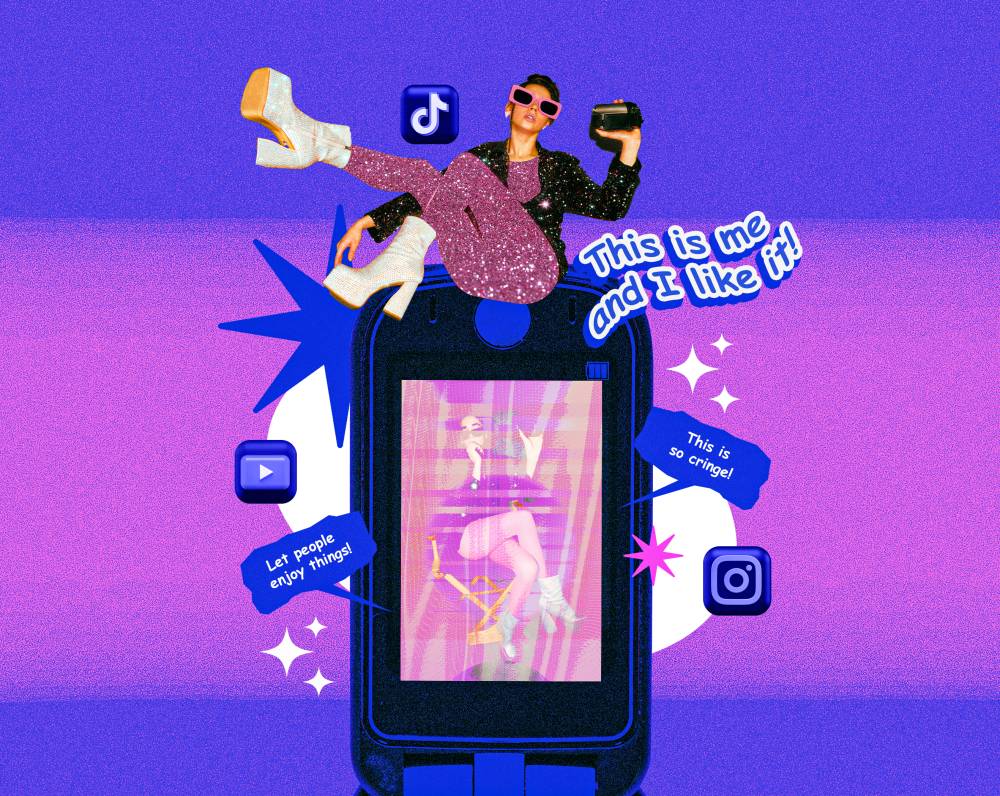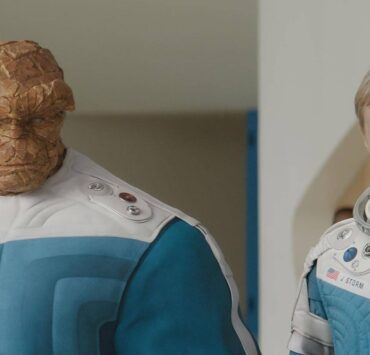The cringe culture crisis

The struggle of any writer is the will to take herself seriously. I often worry that I will never write what I truly want to write, never find myself vocationally tied to something meaningful or powerful—because I may not ever discover it. I have not been granted the tools or the permission to even make my attempt. Too often I was told to shut up, to play along, and to succumb to the forces that undermined me, my intellectual capacity, and my desire to push back.
Instead of resisting a joke made at my expense, I’ll laugh along. Instead of raising my hand to speak, I’ll nod agreeably. I will step into the mold of my womanhood. I will learn to play the part. I will eventually discover the words that could ignite my freedom—only to be too afraid to light the match, too afraid of the necessary friction. I maintain my head down instead, subdued by the sight of my fettered body.
When I stumbled upon an interview in which Ocean Vuong talks about cringe culture among young people, I immediately understand it. Participating in cringe culture is the act of trading earnestness with irony. It can easily be summarized as a fear of vulnerability, a fear of intimacy, and a fear of advocating for oneself. I know this because I am marred by it, and with its resonance, comes recognition—my aversion to sincerity is inextricably linked to my performance of gender and my postcolonial identity.
On cringe culture and sincerity
When asked about writing at a time when individuals are reading less and less, and how Vuong remains hopeful that his writing can make a positive impact, he answers, “At the end of the day, no matter what happens, language is the ultimate technology.”
He affirms the power of language to render meaning and ascribe value to our lives, and in the same breath, he laments young people’s tendency towards the glib, the insincere, the ironic. “This is my eleventh year as a professor,” he says, “and what I noticed, in a very unsettling way, is that our students—at least for America—I can’t speak for other places, are more and more self-conscious of trying.”
“There’s a kind of surveillance culture around social media,” he continues, “and they would say ‘I want to be a poet. I want to be a good writer, but it’s a bit cringe’” Vuong finds this horrifying. As both a writer and a teacher, he works to eradicate this culture and instead, foster an environment where effort is affirmed and not abashed.
When he mentions the word surveillance, I think about the scrutiny that I subject my own self to. How I aspire for smaller and smaller movement, as opposed to bolder strokes and brave experimentation. How I prize silence over interference and peace over protest. How I learn to walk the tightrope of other people’s expectations—dressed in a leotard and a serviceable smile. What has this performance protected me from?
“I think they are absolutely scared of judgment,” he says. “And so, in fact, they perform cynicism because cynicism can be misread—as it often is—as intelligence. You know [when] you are disaffected. You are too cool. You’ve seen it all. And so they pull back, but in fact, they are deeply hungry for sincere, earnest effort.”
On the reclamation of cringe, according to Addison Rae
To disguise my fear of walking along Quezon City streets as a vulnerable woman, against the advice of my dearest friends, I plug in both my earphones. I drown out all sound that is not bubblegum pop. On some level, I understand that I am risking my life for a false sense of security. So I face the truth of that choice. I would rather miss the honk of an imminent car than hear the catcalling and harassment that pervades my passage.
It is Addison Rae’s voice I’d rather listen to. The woman who blew up on a short-form video platform when the world had nothing better to do than to scroll endlessly. The woman whose career and content were made the butt of a running joke. The woman who, years later, would receive critical acclaim for her hit songs “Diet Pepsi” and “Aquamarine.”
Now, there are hundreds of video essays and articles—tracking her trajectory and praising her rebranding from content creator to serious musician, all of which would’ve been impossible without what Gen Z calls “climbing cringe mountain.”
In an episode of the New York Times’ “Popcast,” Rae revealed that at the height of her TikTok fame, she was posting about seven or eight videos a day, “which were like me really trying and making sure they felt good.” Recently, something she said in a YouTube video—mocking the naysayers of her success—went viral across social media platforms.“‘Oh she’s trying too hard this, she’s trying too hard that,’ how about you try at all?” she says, “We can tell you’re not.”
Sometimes audacity is simply all it takes. When I think of my fear of trying, I think about how it once bore a different name—imposter syndrome. I think about The New Yorker article by Leslie Jamison I read years ago. In it, Jamison speaks to Pauline Rose Clance, one of the two psychologists for which to credit the use of the term imposter syndrome—more accurately known as the imposter phenomenon.
Essentially, Clance revealed to Jamison that the term “imposter syndrome” is “technically incorrect and conceptually misleading.” It is not a syndrome that Clance and Imes (her partner in the project) pathologized, but a phenomenon or experience that they had named. To call it a syndrome would be to direct attention away from the systemic ways in which women, particularly women of color, have been made to feel as though they don’t belong. In short, the feeling of being an imposter is an external force, with its own history of oppression and inequality, that many have learned to internalize in thought and behavior.
Cringe culture, like imposter syndrome, is a suppression of power. It is a conditioning that tells you that you are not worthy or enough and instead, contracts you to conformity and obedience.
On cultural identity
It is Resil B. Mojares’ “The Haunting of the Filipino Writer” that confronts me at every turn. When I think about what being a Filipino writer means to me, I think about the multiplicity of this identity, the fissures, and the openings.
“Filipino culture is defined not just by what we were in preconquest times (times that were not pristine or uncontaminated), but by how we carved out in the colonial belly a historically specific identity…Such claims have to be demonstrated in the originality, force, and daring of our cultural productions,” he writes.
I think about these words both on a social scale and a personal one. It begins with resisting a monolith, refusing to play the part. It begins with an outright, sincere proclamation of who and what we are.
My own tendency is to shy away from what I want by reducing myself to a set of facts. I fear being labelled presumptuous. Instead of claiming to be a writer, I simply call myself a person studying creative writing. Instead of claiming to be a writer, I simply call myself a person with the propensity to write. But now I must learn, I am not just the facts of my life. I am all that encompasses that which rings true.
Making myself small is an act of shrinking the body, the blood, and the struggle, from which I came. I refuse to do so. Instead, I choose to live a life of effort. A life entirely antithetical to the smallness that is my conditioning. Ultimately, we choose what we inherit.
I have always been careful in claiming only the appropriate amount of space, but what is considered appropriate is too often what is simply convenient. I am not that. I am a writer. I am a Filipino writer. I am a Filipino writer worth my own exertion.

















